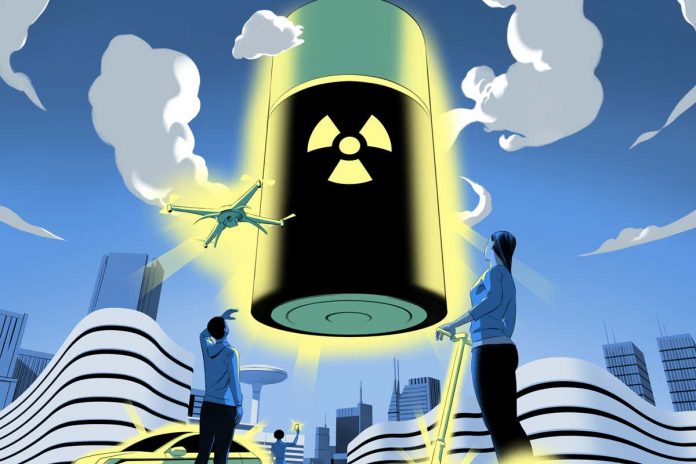[ad_1]
An upgrade on the tech that powers spacecraft across the cosmos could soon be used to create incredibly long-lasting batteries back on Earth
Space
23 September 2020

THE VOYAGER probes blasted off in 1977, beginning what would prove to be the longest journeys ever taken by objects from Earth. The two spacecraft have now left the solar system and Voyager 2 is sending back measurements of interstellar space. As achievements go, it ranks among humanity’s most profound. But a crucial aspect of that success is seldom celebrated: those probes sure do have good batteries.
In the day-to-day grind of life, batteries never seem to last long enough. We must juice up our phones every day, laptops seem to constantly thirst for their power cables, electric cars only go so far before they fizzle out. It is enough to make you want a new type of power supply.
We may be edging closer to exactly that. The Voyager probes employ a weak nuclear power source that, being radioactive, is considered dangerous to use on Earth. But there is a closely related form of energy that packs even more of a punch and could work safely in your average car. It is a long shot. The last time this outlandish technology was seriously considered, 20 years ago, it ended in a broiling controversy. However, now the US Army has it firmly in its sights and has conducted an experiment that might just give it a new lease of life.
Most of the ways we store energy involve chemistry. When we burn petrol in a car engine, we are releasing energy stored in chemical bonds. Similarly, lithium-based batteries in devices like mobile phones work by allowing charged ions to flow. But there is greater …
[ad_2]
Source link











